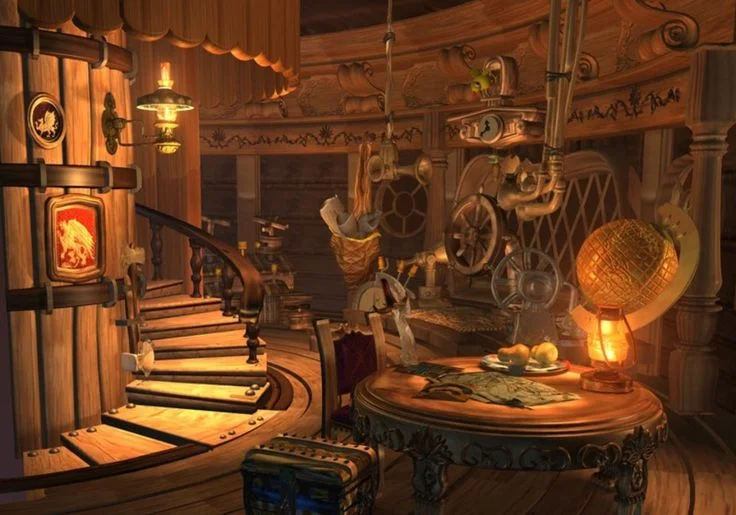Roleplaying, Living and Brotherhood: Finding my Stride after Ten Years in the Craft
/Roleplaying: A Myth-Making Exercise
"San Francisco isn’t in the same country as Lakeside anymore than New Orleans is in the same country as New York or Miami is in the same country as Minneapolis."
"Is that so?" said Shadow, mildly.
"Indeed it is. They may share certain cultural signifiers—money, a federal government, entertainment—it’s the same land, obviously—but the only things that give it the illusion of being one country are the greenback, The Tonight Show, and McDonald’s."
-Neil Gaiman, American Gods, Chapter 11
The Okfenokee Swamp, GA. where I spent much of my childhood years.
Credit Stephen Morton for the NY times.
Growing up in the American South is different from the rest of the United States. Backwoods living contends, in the modern eye, for a place of esteem or ridicule. National Geographic lauds the impoverished country man while simultaneously mocking the traditionalist attitude towards the American social strata. Social media is a luxury to the South; the internet a tool. Reading is likewise condemned for idleness, and rare is it to find a man who enjoys the task. Corporal punishment flourishes in the school system, and the pastor or preacher commands more affluence than any politician or working man. Health is likewise dismissed, with rich foods and indulgence being the forefront of a civil life. Life is transitory, after all, and Heaven is assured and eternal. Why worry on earthy morality?
From the bird's eye view of popular media, this cultural sphere is markedly backwards. The distinguished tradition is suddenly a repulsive habit; Spiritual life turns dogmatic; Small favors become gigantic efforts. In the all-pervasive opinions of a globalist, the people's narrative is never missed, but always misunderstood.
“How could you let your teachers paddle you?”
“Isn't it illegal to have prayer meeting in schools?”
“You're joking; racism can't be that pervasive!”
I'm incredulous about these questions. How to take them? On the one, I'm flattered. The modern era is rigid with antipathy, and it's refreshing to have that social connection opened up, face to face. Yet these things are unremarkable to me, or any southern youth; we never reflected on them. This always leaves me thinking about Margaret Meade, and her interviews with young Samoans. Might they have shared these divided feelings? Who was this weird, strange woman who kept analyzing our habits? How do I respond to this?
The advent of social media introduces a whole generation to this conundrum. The internet connection, once so rare a commodity, is now shared between the ghetto tough and the political worker. No longer the small place of ineffectual office workers, the internet occupies the same space as the Model T or the horse and buggy; the airplane or the automobile. It is the premiere tool of the century, and the only way of moving forward as a culture.
The older generations rightly looks on with mixed feelings. Lectures and lessons, once the occupation of the betters, is now being replaced by Yahoo Answers, Google searches and blog posts. Leisure time – much needed in humid climes – becomes an eclectic blend of sensory data as we stare at our all-knowing SmartPhones. Television capitulates, replaced by the instant-access of YouTube. Newspapers tout their demise. Video Rentals close their stores. And on, and on…
Theirs is the question shared with Meade's Samoans.
“How do I respond to this?”
Post modernist thinking has been tackling this for a while now. The question of 'How do I respond to this?' is being answered in any number of ways, by a wide variety of authors. Some are preaching nihilism; others a direct dismissal of the modern convenience. However they handle it, everyone is tasked to answer that same question. Here is your world, now how do you respond?
In a recent trip to the Montana backhills, my brother and I landed on this same question. Hiking the trails of backwoods Montana, alone and out of the way, it's easy to wax philosophical. Having both of us come from the same background assisted in this. He was as much out of place as I in this dry, sloping backcountry. And while we reflected on our shared upbringings and the strangeness of our new home, we invariably found ourselves coming back to a strange and all-too-familiar subject.
Roleplaying.
It didn't seem off topic at all. While some hikers are apt to discuss their previous experiences in the hills, we seemed more prone to discuss the mysticism of pretend shaman, the mad endeavors of our make-believe sorcerers. And as the night wore on, we found ourselves immersed in a much older view of the Montana foothills. The woods became cloudy and myth-stricken, the rivers unknowing to the touch of Europa. We found ourselves in a darker wood, then, with each night-sound becoming enlarged and aggressive to our imaginative ears. To any listener we would surely seem strange. Who were these accented boys, talking fantasy in the wilderness? Casualties of childhood, no doubt. Best to leave them be, and allow them to entertain their niche hobby. Certainly, we'd encountered much that same sentiment in our time, but it wasn't until that night, in pitch-black darkness of bear-country, two thousand miles away from our hometown, that I finally dismissed that sentiment.
What my brother and I share is something more than simple locale, I learned. More than anything, our time spent roleplaying has lent us a shared and secret history, something extending beyond location, age and occupation. We enriched each others imaginations, giving voice to a new layer of our brotherhood. While we hiked, we discussed the redemptive aspects of the hobby, how our home lives affected it, and how those affections were reciprocated back into our real living. It seemed those stories held a power that, even after ten years passed, we still could look back to when needing guidance. Here, in this far flung part of the Rockies, it's reflection calmed me as I finally settled into the land I'd chose to live in.
In my brother's words: “What you're doing, when you're roleplaying, is you're creating myth. Consider what you're doing; You're putting on a mask, pretending to be something else, and then presenting it to someone else. That's what myth was, once. Without that, do you honestly think you'd be where you are, now?”
No, I can't.
Roleplaying, for me, is the answer to the Southerner's question. That question of 'How do I respond?' Though my lifestyle has changed, and my living situation changed, I find myself inexorably drawn back to the practice, the worldbuilding, the myth-making.
It's been practiced for centuries, what we're doing. Among the smallest gangs and the greatest nations, everyone successful group has had to create it's own social narrative, put on the mask, become some character and then tell a story.
Think about it. How many roleplaying groups have led to friendships? Marriages? How many times do players travel to meet each other? How often do you hear guys getting in the gym because their character is strong? How many times have you played a character, only to find that same character guiding you towards other realms of self improvement? These stories are lending something to you in a way that other hobbies can't.
This is why I keep coming back to roleplay. When we need that boost in our real lives, we can often find it in the shared story of our peers. Books may move us and films may inspire, but roleplaying is something apart. Set between the dual aspects of interactivity and group thought, our stories - our shared stories - can lend an immense power into our lives.
I may never feel entirely at ease with where I live. Whether I move somewhere else, or continue staying, I think I am always going to feel like an outsider. This is just the nature of my character, I think, and a part of who I am. So long as I have my stories and my pack, I am content.
He sat down on a grassy bank and looked at the city that surrounded him, and thought, one day he would have to go home. And one day he would have to make a home to go back to. He wondered whether home was a thing that happened to a place after a while, or if it was something that you found in the end, if you simply walked and waited and willed it long enough.
-Neil Gaiman, American Gods, Epilogue













![Almighty Allen [Featured Artist]](https://images.squarespace-cdn.com/content/v1/55e49864e4b01d0dc78ba129/1494016363924-BAS6WH35KFUSQOCCO4RR/X8YeVUb.jpg)

![Slain by Syrena [Featured Artist]](https://images.squarespace-cdn.com/content/v1/55e49864e4b01d0dc78ba129/1489542756189-19DYL4NJ7L1HWG9QJBC6/ss10.jpg)